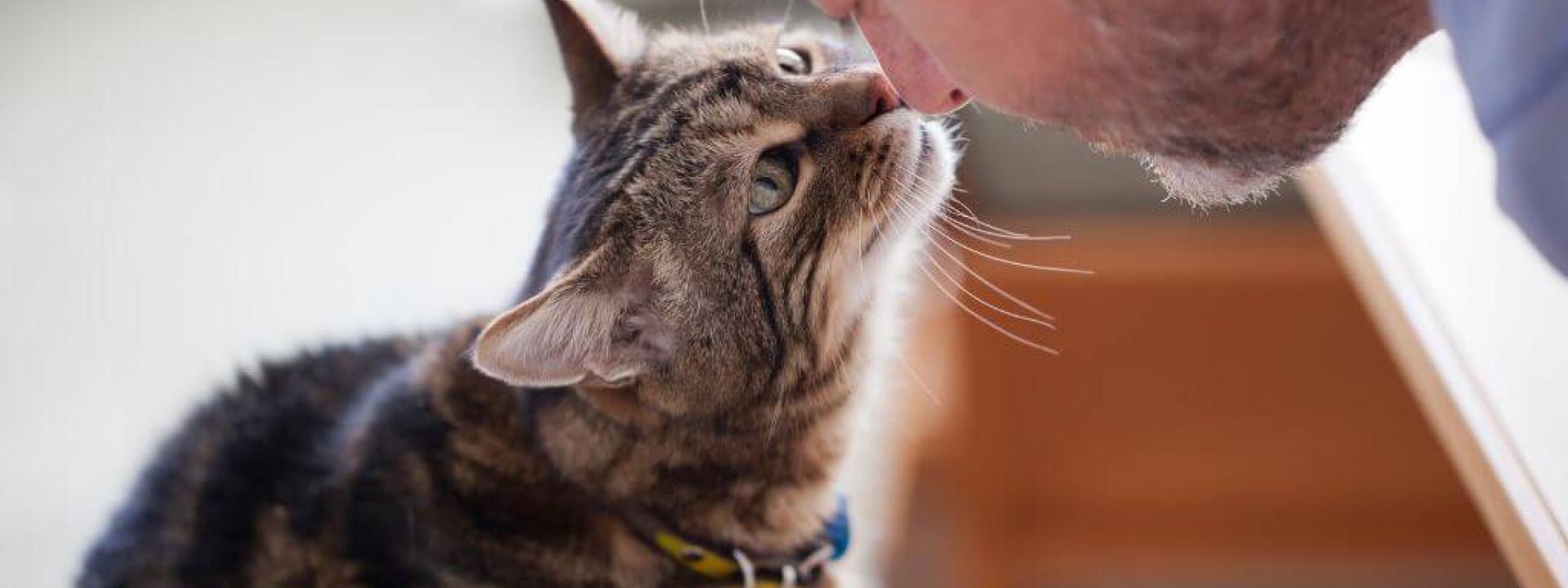As a veterinarian, I've cared for many senior cats and witnessed their unique journey through their golden years. Much like humans, aging in cats brings about many changes. It's a time when observation and adaptability become key in ensuring our feline friends' continued health and happiness. In this blog, we'll explore what aging looks like for cats, their nutritional needs, the importance of preventative care, and how to maintain their quality of life as they grow older.
Understanding Aging in Cats
Aging in cats can manifest in various ways. You might notice a gradual slowing down, changes in nutritional needs, and an increased likelihood of disease. Remember, while age is not a disease, it does bring an increased risk of health issues. That's why annual exams and screening tests are so important for early detection. As a pet owner, staying vigilant and looking for changes in your cat's behavior or physical condition is the best way to help maintain their quality of life for as long as possible.
.jpg)
Recognizing Signs of Aging
As cats enter their senior years, typically around the age of 7 to 10, you may notice several subtle yet meaningful shifts in their behavior and physical condition. One of the most common signs is a decrease in activity level; your once playful kitty may now prefer longer naps and shorter play sessions. You might also observe changes in their mobility, such as reluctance to jump onto high surfaces or a slight stiffness when moving. Additionally, changes in appetite or weight, either increase or decrease, can be indicative of underlying health issues common in older cats, such as dental problems or metabolic changes.
Other signs to watch for include alterations in grooming habits, which could lead to matted fur or a less shiny coat, and changes in social interaction — some cats may become more clingy, while others prefer solitude. It’s also crucial to pay attention to their cognitive health; signs like disorientation, confusion, or changes in sleep patterns could suggest cognitive dysfunction. By staying attentive to these aging signs, cat owners can take proactive steps to adjust their care routine and consult with their veterinarian to ensure their senior cats continue to live comfortably
Meeting the Special Needs of Senior Cats: Comfort, Nutrition, and Preventative Care
As our feline friends enter their senior years, their needs evolve, requiring us to adapt our care to ensure they continue to thrive. Creating a nurturing environment, understanding their nutritional requirements, and focusing on preventative healthcare are key elements in caring for senior cats. Let's delve into each of these aspects:
Creating a Comfortable Environment
- Resting Areas: Senior cats cherish their rest more than ever. Ensure they have easy access to comfortable, warm sleeping spots. A low-lying, plush bed can provide the support needed for their aging joints. If they have a favorite high spot, consider a pet ramp or steps to help them reach it comfortably.
- Temperature Regulation: Older cats may struggle with temperature regulation. Keep their environment warm and draft-free, and consider a heated bed or pad for added comfort, especially in colder months.
- Litter Box Accessibility: Arthritis and mobility issues can make using a standard litter box challenging. Opt for a box with low sides for easy access and ensure it's placed in a convenient, quiet location.
Addressing Nutritional Needs
- Specialized Diet: Senior cats' nutritional needs change as metabolism slows down. A diet lower in calories but rich in easily digestible proteins can help manage weight and maintain muscle mass. Consult with your veterinarian to choose a diet tailored to your cat's specific health requirements, such as kidney function or joint health.
- Hydration: Encourage water intake to support kidney function and overall health. Consider providing multiple water sources or a cat water fountain to stimulate drinking.
- Supplements: Depending on their health, some senior cats may benefit from supplements like omega-3 fatty acids for joint health or probiotics for digestive wellness. Always discuss any supplements with your vet before adding them to your cat's diet.
.jpg)
Prioritizing Preventative Care
- Regular Veterinary Check-ups: Biannual vet visits are essential for early detection and management of age-related conditions. Routine blood work, dental care, and health screenings can catch issues before they become serious.
- Monitoring for Changes: Be vigilant for signs of illness, such as changes in appetite, weight, behavior, or litter box habits. Early intervention is key to managing chronic conditions common in senior cats, like kidney disease or hyperthyroidism.
- Vaccinations and Parasite Control: Keep up with vaccinations and regular parasite prevention, as seniors' immune systems are not as robust. Discuss with your vet the appropriate vaccination schedule for your senior cat's lifestyle and health status.
- Mental Stimulation: Keeping their minds active is as important as physical health. Engage your senior cat in gentle play and provide enrichment activities to keep their cognitive functions sharp.
The Importance of Observation
As the pet owner, you play the most crucial role in your senior cat's health. Changes in habits or behavior are vital information for us veterinarians. Despite the potential stress of vet visits, we strive to make these experiences as comfortable as possible for your cat. Pain in cats can be subtle, so it's essential to watch for signs like changes in litter box use, mood shifts, or excessive licking of certain areas.
Quality of Life in Senior Cats
As a veterinarian, my goal is to work with you to ensure that your senior cat's twilight years are filled with comfort and joy. Quality of life in senior cats is about knowing and understanding your pet. If they stop engaging in activities they once enjoyed, it might be time for a vet visit. Cats displaying a decline in interaction or hiding more than usual could be indicators of a decrease in their quality of life.
By understanding their needs and adapting to their changing lifestyle, we can help them enjoy their golden years to the fullest. Remember, every moment with your senior cat is precious, and with the right care, you can make these years some of their best.
If you have questions and you'd like to reach out to us, you can call us directly at (740) 369-1922, or you can email us at [email protected]. Don't forget to follow us on social media Facebook, Instagram.

